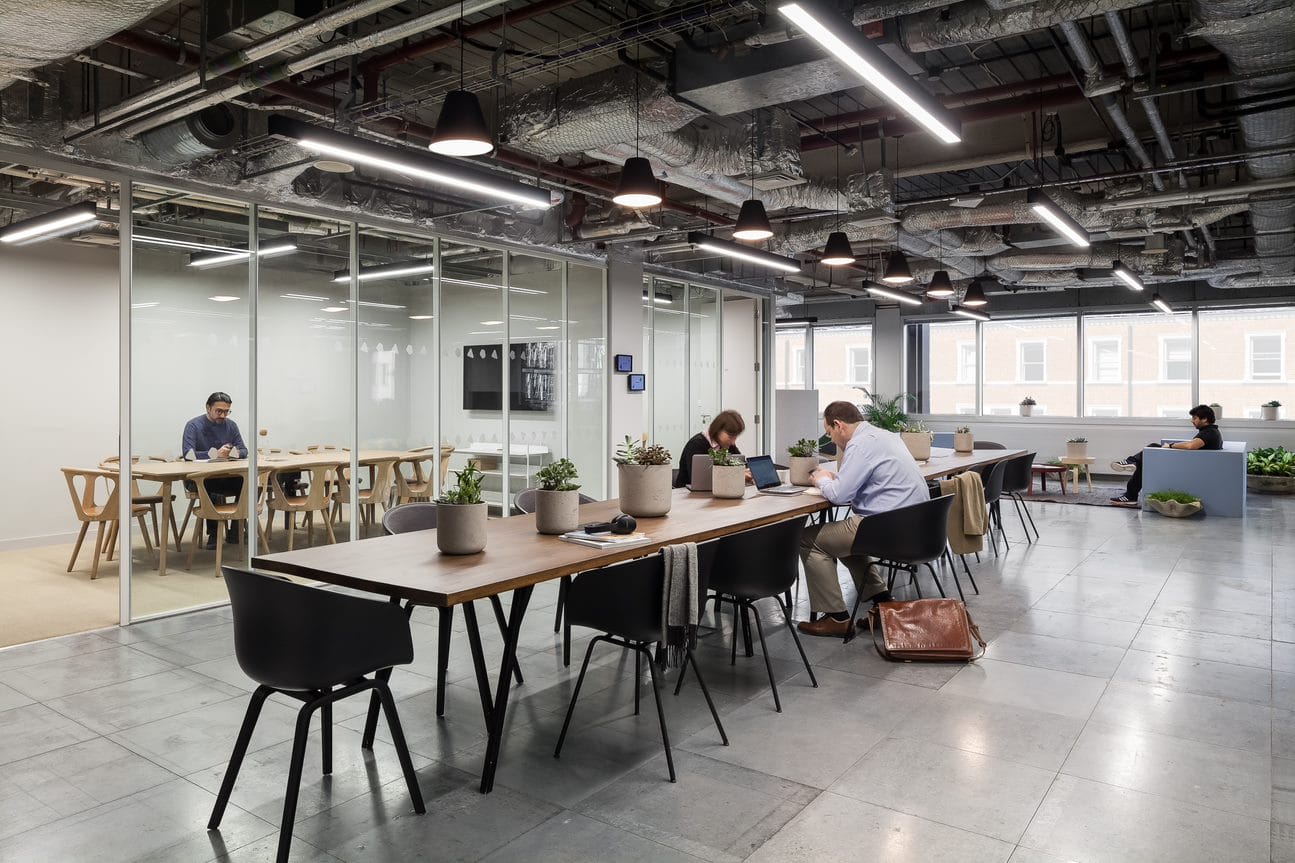

In the new fast-changing workplace, businesses need to be able to be agile. Embrace flexibility and you will increase productivity, but in order to do that, innovative and high growth new businesses require a specific type of workspace. Having outgrown co-working, they are finding conventional office space doesn’t work for them and are looking for something that will cater to their particular needs.
There is a need to plug this gap and provide a workspace that is a step-up from highly shared co-working spaces; enabling customers to reflect their own brand and culture, whilst supporting them with flexible, all-inclusive agreements. This will, in turn, increase employee satisfaction leading to increased productivity – one of the biggest issues facing British business today.
Five themes need to be kept in mind when creating this new type of workspace, which were not necessarily uppermost in more traditional offices:
1. Flexibility
The first – and key – requirement is flexibility, because this means that growing businesses will not have to commit to long rental agreements but will be able to see their workplace grow and change as they do themselves. A flexible approach with short leases aligns with the planning horizons that SMEs are used to.
2. Personalisation
The next important quality is personalisation, which involves reflecting the company’s own brand and ethos. This too contributes to employee satisfaction levels as it helps them to relate to their company, becoming a part of its culture. To do this successfully, the company providing the space must consider the exact nature of the work being done. It is a bespoke service for the client.
3. Simplicity
Thirdly simplicity; this boils down to making sure the customer knows exactly what its monthly outgoings will be, and so all payments involved in the running of an office, including rent, utilities bills and high-speed broadband are wrapped up into one fee. Allowing the customer to forget about day-to-day issues and get on with building up the business.
4. Productivity
The fourth concern is, of course, making the office space enhance productivity. This can be as simple as providing fast, resilient Wi-Fi that ensures continuity of business, to promoting wellbeing (e.g. standing desks) to providing the right types of spaces to support the way a company works e.g. collaboration spaces vs focus areas. And the office must have the ability to adapt over time, as any new business will tell you that they have different requirements at different stages of their journey.
5. Shared space
Finally, an understanding of shared space. While a growing business might need most of their own space, there can be some shared facilities, which will help in keeping costs down and cannot be justified as they will not be used all the time. These include board rooms, kitchens, showers, bike storage and dynamic areas where companies can interact.
All of these themes work together to provide a great space that keeps the team happy – which in turn helps them to work.
*This article was previously published on Business and Industry. You can read the original article here.